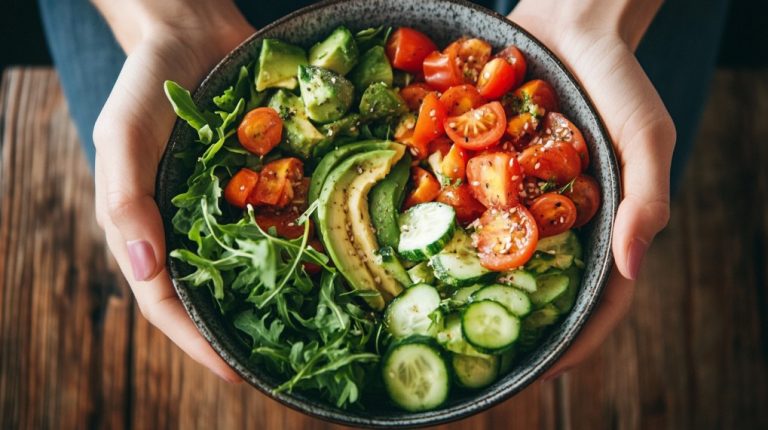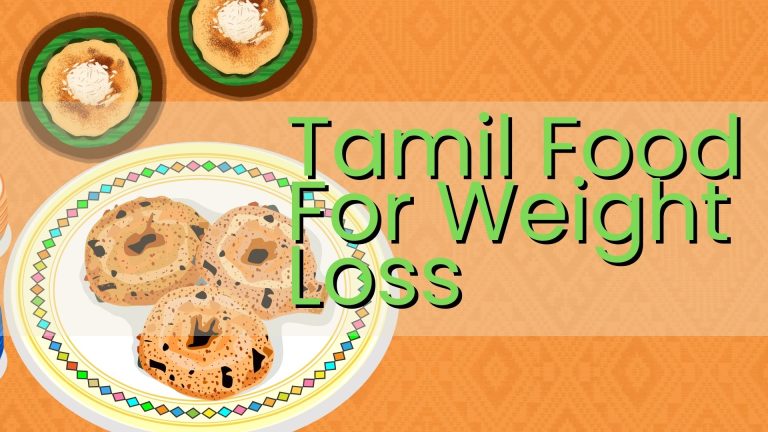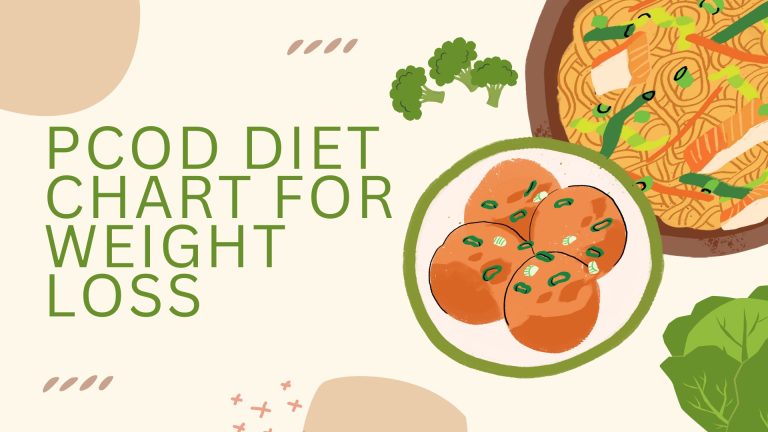 Some people must be conscious of their diet to manage their weight, while others can eat without restrictions and still reach the same results. How do certain individuals effortlessly maintain their weight without needing strict diets or vigorous exercise routines? There is no easy answer to this question. While genetic, nutritional, and behavioral factors all contribute, their influence varies from person to person. It can be difficult for some individuals to put on weight or keep a healthy weight, possibly because of genetics or an underlying health condition. This article explains why some people struggle to gain weight and provides information on how to naturally reach a healthy weight.
Some people must be conscious of their diet to manage their weight, while others can eat without restrictions and still reach the same results. How do certain individuals effortlessly maintain their weight without needing strict diets or vigorous exercise routines? There is no easy answer to this question. While genetic, nutritional, and behavioral factors all contribute, their influence varies from person to person. It can be difficult for some individuals to put on weight or keep a healthy weight, possibly because of genetics or an underlying health condition. This article explains why some people struggle to gain weight and provides information on how to naturally reach a healthy weight.
Understanding the Basics
Some people may want to gain weight because they are naturally underweight or have a fast metabolism. Being underweight may also be indicative of insufficient nutrition or underlying health disorders. There are multiple ways to define being underweight. It refers to a low weight relative to height, indicated by a BMI below 18.5. It could also mean a weight that is 15-20% below the average weight for someone of that age.
Moreover, individuals who are not medically underweight may still desire to increase muscle mass and gain weight for various purposes. However, ensuring safe weight gain is a priority. This may involve consuming foods that are rich in nutrients and adopting a generally healthy lifestyle, which includes getting adequate sleep and minimizing stress whenever possible. If you have reasons for wanting to increase your weight, there are numerous strategies available to you.
The primary way to gain weight is by consuming more calories than your body burns, resulting in a calorie surplus. To gain weight gradually, aim for a daily calorie intake that is 300-500 calories above what you burn. To gain weight quickly, consider consuming approximately 700–1,000 calories more than your maintenance level.
Counting calories may not be necessary long-term, but it can be beneficial to track them initially for a few days or weeks to understand your calorie intake. There is a wide range of excellent tools to support you. Including high-calorie snacks such as nuts, cheese, avocado, eggs, and protein powder can help you gain weight in a healthy way. Healthy carb-rich foods include oats, quinoa, and fruits like oranges, bananas, blueberries, sweet potatoes, and buckwheat.
Carbohydrates are essential for ensuring a well-rounded and nutritious diet. Factors such as age, gender, and overall well-being should determine your daily food consumption. According to experts, it is generally recommended that carbohydrates make up 45% to 65% of your daily caloric intake.
Consuming energy-dense foods is essential for weight gain, as they contain a high amount of calories. By incorporating spices, sauces, and condiments, it becomes simpler to consume larger amounts of food as the flavor is enhanced. Energy-dense foods include nuts, dried fruit, high-fat dairy, fats and oils, grains, meat, tubers, and other energy-dense foods like dark chocolate, avocados, peanut butter, coconut milk, granola, and trail mix.
- Quality Nutrition
To gain weight in a healthy way, focusing on foods that are high in nutrients is crucial. To maintain a balanced diet, be sure to include lean proteins to build and repair tissues, complex carbs for sustained energy levels, healthy fats to support brain function, and a variety of vitamins to support your overall health. Carbohydrates, necessary for energy production, can be found in rice, whole grain bread, cereals, dried fruits, dark chocolate, and legumes. Rice provides protein and calories, while whole grain bread and cereals like oats, wheat, barley, and rice offer complex carbs and protein.
Potatoes, pasta, sweet potatoes, squash, corn, beans, and chickpeas are all excellent sources of carbohydrates, which help fuel your body during exercise by supporting glycogen storage. Salmon, eggs, and protein shakes are essential for muscle growth and maintenance. Salmon is rich in protein and omega-3 fatty acids, which support brain and eye health. Eggs are a rich source of protein, healthy fats, and choline. If you’re a vegetarian, vegan, or have a small appetite, protein shakes can be a convenient solution for boosting your protein intake.
- Strength Training and Exercise
Muscle growth is encouraged by resistance training. Resistance training can involve various methods such as using free weights, weight machines, resistance bands or your own body weight. You can try the following:
Limit your training to only two or three sessions per week to allow your muscles to rest. Keep in mind that muscles grow while recovering, so resist the urge to overtrain.
When choosing exercises, focus on compound movements that activate several major muscle groups simultaneously, like the squat and bench press.
Choose to make your workouts brief and intense, rather than lengthy and relaxed.
Consult with a professional for advice. To ensure proper execution of each exercise, it is recommended to seek guidance from a gym instructor, personal trainer, exercise physiologist, or physiotherapist. Following good advice will boost your profits and lower the chances of getting injured.
- Healthy Snacking
Gaining weight is not solely dependent on your food choices, but also on your eating habits and timing. Plenty of foods with high-calorie content can be beneficial for weight gain. So how can you combine these indulgent foods to create calorie-packed snacks? Here are some suggestions.
- Avocado toast: Apply avocado onto a slice of toast and add a touch of balsamic vinegar for extra taste.
- Plain yogurt with fruit and honey: Instead of syrups and added sugar, use ripe fruit and a bit of honey as a healthier sweetener for flavored yogurts.
- Nut butter on whole-grain crackers or apples: Divide your apple into four parts and create a small area for the nut butter in place of the core.
- DIY trail mix: Experiment with different combinations of dried fruit, seeds, and nuts to create a customized mix that suits your palate.
- Egg salad: Cut a few eggs into pieces. Combine plain yogurt, mustard, salt, pepper, and a small amount of celery for added texture.
- Smoothies and shakes: The number of available combinations is unlimited. To begin, you could consider incorporating protein powder, milk, a serving of fruit, a leafy green vegetable, and some nut butter.
- Hydration and Rest
Staying properly hydrated and getting enough sleep are essential for healthy weight gain. Adequate hydration is necessary for optimal bodily functions and the absorption of nutrients. To maintain optimal hydration levels, aim to consume a generous amount of water throughout the day. In addition, getting enough rest is crucial as it helps muscles recover and promotes overall well-being. Getting sufficient sleep every night helps your body effectively repair and build muscles, which supports your weight gain journey. Don’t forget that maintaining a balance of nutritious foods, staying hydrated, and getting enough rest is key to reaching your health and fitness objectives.
- Patience and Consistency
Weight gain is a gradual process, so patience is key. Consistently following a healthy diet and exercising regularly leads to long-term success. Focus on ensuring you consume nutrient-dense foods, stay hydrated, and prioritize rest. Regular physical activity, especially strength training, can promote muscle growth. Keep in mind that progress might be gradual, but staying consistent and balanced will assist you in reaching your objectives. Take time to acknowledge and celebrate small achievements on your journey towards becoming a healthier and stronger version of yourself, and stay dedicated to your goals, knowing that every step forward brings you closer to success.
Also read : How to lose weight naturally and permanently
CONNECT WITH OUR NUTRITIONIST
Conclusion
To gain weight in a healthy way, focus on building muscle mass and subcutaneous fat instead of accumulating excess belly fat. Even when trying to gain weight, a balanced and healthy diet remains important for safe results. Consuming an extra 500 calories per day could lead to an average weight gain of around 15 pounds (6.8 kg) in 6 months. However, the duration can vary for each individual, influenced by factors like gender, age, and overall well-being. Some reasons why gaining weight can be challenging include your genetic makeup, being naturally thin, or having a speedy metabolism.
One of the quickest methods to gain weight is by increasing your calorie intake. However, the strategy that will work best for you ultimately depends on your unique health needs. A dietician can assist you in creating a personalized plan, taking into account your specific needs and goals. If you are struggling with weight gain, consult a dietician at Qua Nutrition. Based on your needs, we can tailor a plan that will help you gain weight naturally. Get in touch with us to know more.










